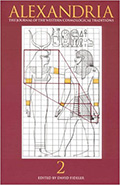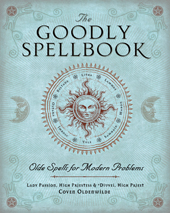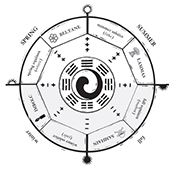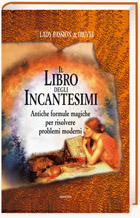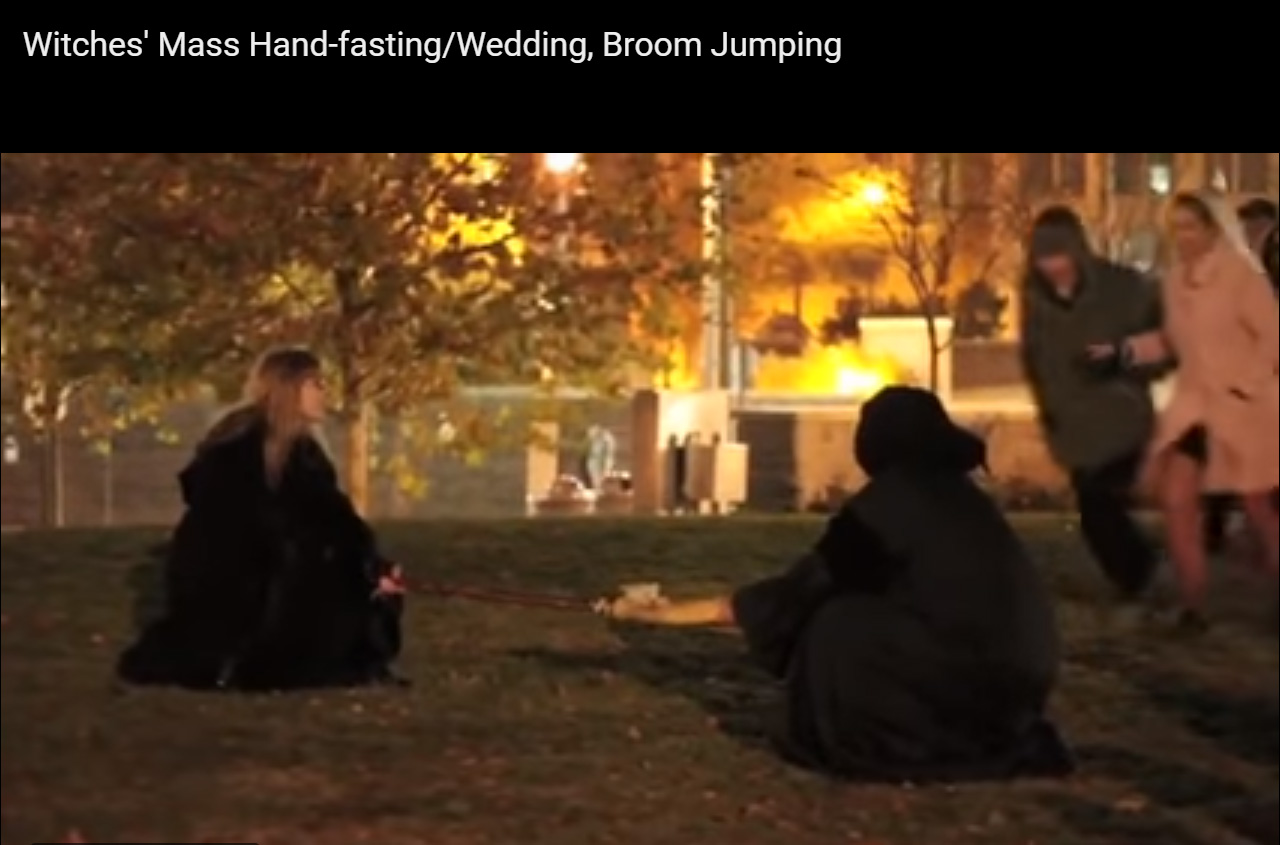Recommended Witch Books:
Tag: paganism
Influence of Animism on Islam, The
Review:
Exploration of the polytheistic animism that preceded monotheistic Islam, and its continued influence on the later religion and other cultures; written by a Princeton Theological Seminary professor.
Tags
Witchcraft Basics
Witchcraft-related Subjects
Folklore of the Scottish Highlands
Review:
Mystical, revealing details of ancient and olde Scottish Highland Pagans written in a balanced sympathetic and objective manner by a Gaelic-speaking archaeologist and magical practitioner.
Tags
Witchcraft Basics
Sarava: Afro-Brazilian Magic
Review:
Thorough, illustrated explanation of Brazilian mystery religions such as Amer-Indian, Candomblé, and Umbanda, etc.; written by an experienced Wiccan Priestess.
Tags
- sacred substances
- illustrated
- scholarly
- customs
- superstitions
- paganism
- traditions
- herbs
- techniques
- Afro-Brazilian magic
- altered states
- astral
- indigenous religions
Witchcraft Basics
Etruscan Roman Remains
Review:
A facsimile copy of the folklorist’s authentic 1892 masterwork revealing the beliefs, customs, deities, formulas, recipes, rites, and spells practiced and prized by 19th-century Witches in Tuscany. Written by the President of the Gypsy-Lore Society, this classic is the only book to list names of pesky daimons that plague lonely men and women, etc.
Tags
- recipes
- rituals
- persecution
- customs
- spellbook
- paganism
- ancient occult philosophy
- nonfiction
- Etruscan
- spells
- incubus
- magical formulas and recipes
- Olde Religion
- Pagan customs
- Pagans
- succubus
- daimons
- Tuscan Witches’ beliefs
- Rites
- European
- formulas
- deities
- Italian
Witchcraft Basics
Buckland’s Complete Book of Witchcraft
Review:
The famous "blue book" features illustrated, authentically traditional magic authored by the first Gardner-trained Third Degree Witch to publish such material in America. However it cannot, as promised, impart the reader “the equivalent of Third Degree.”
Tags
- herbalism
- scourging
- gods
- magic
- solitary practice
- goddesses
- occult
- Gardnerianism
- paganism
- Olde Religion
- American
- circle: casting
- Witchcraft
- athamé
- esbats
- Priest
- channeling
- nonfiction
- divination
- dream-work
- ritual
- European
- robe
- sabbats
- grimoire
- spells
- healing
- covenwork
Witchcraft Basics
Witchcraft Today
Review:
An expanded edition of the 1954 classic by the father of the modern Witch renaissance. Covers myriad magical topics, including Picts, pixies, Pagan persecution, cauldrons, and Kabbalah, and includes a biography of Gardner and contributions from some Wiccan elders regarding the Olde Religion's past, present, and future.
Tags
- practices
- magical
- Wicca
- Witchcraft
- Pagans
- Witch
- Rites
- ancient
- customs
- authentic
- paganism
- beliefs
- nonfiction
- theology
- spells
- animism
- Olde Religion
- elders
Witchcraft Basics
Witchcraft: The Old Religion
Review:
Magic that rings true, rare interviews with seminal Gardnerian figures, and a fascinating 1970s-era view of the challenges that Wicca’s burgeoning popularity posed the Craft community; written by a Strega practitioner and ground-breaking activist for Pagan and gay rights.
Tags
- paganism
- Against Christianity
- nonfiction
- Lady Theos
- Gardnerian
- Sicily
- magic
- Olde Religion
- Witchcraft
- interviews
- Pagans
- Witch
- witches
- Italian
- Strega
Witchcraft Basics
An ABC of Witchcraft
Review:
Alphabetized information about Craft beliefs, traditions, lore, and practices; written by a witness to the modern rise of Witchcraft.
Tags
- Aleister Crowley
- practices
- witches
- Book of Shadows
- Priestess
- Craft terms
- reference
- paganism
- esbat
- Robert Cochrane
- England
- family traditions
- sabbat
- God
- Gerald Gardner
- Wicca
- Goddess
- Gardnerian
- Witchcraft
- nonfiction
- magic
- ritual
- New Forest Coven
- Pagan
- occult
- 1734 plate
- Olde Religion
Witchcraft Basics
Witch Book
Review:
Alphabetized, oft-illustrated information about magical practices, fads and traditions, and some ancient and modern occultists; written by a trained Gardnerian Witch elder who’d given our The Goodly Spellbook a rave review.
Tags
- Witchcraft
- America
- Craft beliefs and terms
- paganism
- folklore
- nonfiction
- paranormal
- Pagan
- spiritualism
- occult
- table-tipplng
- Olde Religion
- Witch
- practices
- reference
- Wicca
Witchcraft Basics
Drawing Down the Moon
Review:
Craft history, information about diverse magical practitioners, groups, and Covens, and resources; written by a traditionally trained Gardnerian Witch; the author included information about Coven Oldenwilde in this 20th-anniversary update of her 1986 original edition.
Tags
- occult
- Feri
- paganism
- spirituality
- Olde Religion
- gatherings
- God
- practices
- Goddess-Worshipper
- Goddess
- Priestess
- heathen
- nonfiction
- reference
- interviews
- ritual
- Wicca
- nature
- cosmology
- Witchcraft
- Pagans
- Craft terms
- America
- witches
- polyamoury
- Gerald Gardner
- ceremonial magic
- polytheism
- Gardnerian
- Druids
- history
- Priest
- magic
- Earth
- tradition
- principles
Witchcraft Basics
Alexandria: The Journal Of The Western Cosmological Traditions
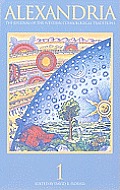
Alexandria 1: The Journal of Western Cosmological Traditions
Vol. 1, ed. David Fideler (1991 Phanes Press)
Alexandria 2: The Journal of Western Cosmological Traditions
Vol. 2, ed. David Fideler (1994 Phanes Press)
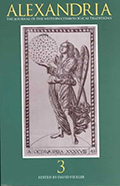
Alexandria 3: The Journal of Western Cosmological Traditions
Vol. 3, ed. David Fideler (1995 Phanes Press)
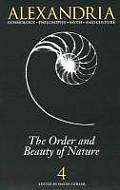
Alexandria 4: The Order & Beauty of Nature
Vol. 4, ed. David Fideler (1997 Phanes Press)
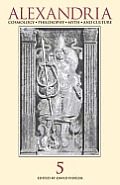
Alexandria 5: Cosmology, Philosophy, Myth, & Culture
Vol. 5, ed. David Fideler (2000 Phanes Press)
Review:
Explorations of Pagan topics such as the Life of Hypatia, an Orphic Hymn to Artemis, the Sacred Geography of the Ancient Greeks, The Science & Art of Animating Statues, and Pythagorean Harmonics, etc.; written by academic researchers and magical practitioners.
Tags
- God
- Pagan
- Goddess
- philosophy
- nonfiction
- religion
- Artemis
- research
- cosmology
- Roman
- Gnostic
- sacred architecture
- Greek
- harmonics
- Hypatia
- hymns
- Mantinea
- sites
- history
- Orphic
- statues
- paganism
- Orphism
- Western magical traditions
Witchcraft Basics
New Edition of The Goodly Spellbook
A decade after the debut of The Goodly Spellbook, magic is more needful than ever as pollution and technology alienate us from nature, robots render our jobs obsolete, and relentless corruption, inequality, intolerance, and violence make us feel like vulnerable prey.
Spellcraft is the remedy for our hardscrabble lives. Its timeless power helps us oppose oppression and enables us to thrive by giving us health, wealth, peace, strength, and joy.
Did you know:
- that the yin-yang symbol decorated ancient Roman shields?
- that the exclamation “Holy Moly!” praises a magical herb?
- that a Russian spell in a Herzog movie protects travelers?
- that eating certain seeds can banish an incubus or succubus?
- that striking a flamingo pose can stop an attacker cold?
Want to learn magic such as:
- how to get fast cash by growing a green crystal garden?
- how to influence anyone by plaiting string?
- how to compel a Goddess to get you child support?
- how to conjure a personal helper spirit?
- how to break any addiction or compulsion?
- how to foretell the future by tossing dried beans?
“The Goodly”, as fans affectionately call it, has enjoyed international acclaim. A Book-of-the-Month Club selection, it has been reprinted multiple times in hardcover and paperback, translated into Italian, and published as a Barnes & Noble Nook eBook.
In an era when printing tangible books has become a rarity, we feel privileged that Sterling considers us “evergreen bestsellers” and encouraged us to add new material to our classic spellbook. We hope that you’ll appreciate our care in revealing relevant, traditionally based spells helpful to your daily life and ongoing spiritual growth.
Sporting a fresh cover, intriguing new illustrations, and an impressive 520+ pages, The Goodly Spellbook: Olde Spells For Modern Problems explains magic’s fascinating history, comprehensive Witch skills, and hundreds of workings to enable your success, health, wealth, peace, strength, and joy.
So thrill to the new inclusions in our 10th anniversary 2nd edition, which includes a bibliography of herbal resources, an expanded index for quick reference, and access to private online courses that can lead to Initiation or even launching a home-based magical counseling practice! thrill to the new inclusions in this 10th-anniversary edition of “The Goodly” as fans affectionately call it, such as more easy, effective spells, fascinating illustrations, a bibliography of herbal resources, and an expanded index for quick reference. Further, it provides access to private online courses that can lead to Initiation or launching a magical counseling practice at home.
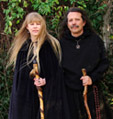
Authors Lady Passion & *Diuvei
The Goodly Spellbook 1st-edition cover (2005-2014)
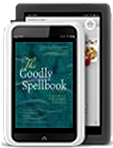
The Goodly Spellbook eBook for Nook app or devices
Refer to the book during ritual; pen notes in its margins; color-code or tab its sections; dog-ear important pages; or meet others of like mind by forming a study group using TGS as its curriculum.
Authors Lady Passion and *Diuvei of Coven Oldenwilde in Asheville, NC are fan-friendly and encourage readers to email testimonials about how the book enables them. The High Priestess and High Priest will be doing book-signing events at area venues.
- To schedule an appearance or interview, email Lady Passion & *Diuvei at:
oldenwilde@oldenwilde.org.
by Lady Passion and *Diuvei (Dixie Deerman and Steve Rasmussen)
Publisher: Sterling Publications, Inc., New York, NY
Paperback, list price: $14.95
2nd edition ISBN: 978-1-4549-1392-4
Release Date: Sept. 2, 2014
- Buy TGS at your local bookstore, or order online from BarnesandNoble.com or from SterlingPublishing.com.
Celebrity Praise of The Goodly Spellbook:
“The Goodly Spellbook is a well-written, beautifully presented collection of old and new magic, utilizing time-tested spells of all kinds. The authors have accumulated a wonderful and useful assemblage with everything needed for magical success. As is stated in the Introduction, ‘This book does more than merely reproduce recipes . . .’ Indeed it does! It gives the background to spellwork; it details such tools as magical writing, music, chant, dance and song; and it even speaks of the importance of ethics in magic and spellcraft. This is a worthwhile book for every Witch, magician, and sorcerer’s apprentice.”
— Raymond Buckland (Buckland’s Complete Book of Witchcraft, The Witch Book)
“Offering a wide variety of enchanting spells complete with origins and magical theory, The Goodly Spellbook is an impressive, comprehensive work that is surely destined to become a classic. As an occultist and long-time priestess of the Old Religion, I strongly recommend this fine volume to all magical practitioners and anyone interested in the Witches’ craft.”
— Gerina Dunwich (Wicca Craft, Dunwich’s Guide to Gemstone Sorcery)
“The Goodly Spellbook is a delightful and refreshing blend of sound practical advice coupled with traditional folk magic practices. Every magical library should contain a copy of this book, which preserves ancient tradition while making it pertinent to modern times.”
— Raven Grimassi (Italian Witchcraft, The Wiccan Mysteries)
“The Goodly Spellbook powerfully expresses the beauty, joy and potency of spellcraft. Lady Passion and *Diuvei have lovingly crafted an elegant, eclectic and wide-ranging collection of traditional and modern spells. With information for novice and adept alike, The Goodly Spellbook is a valuable addition to any magical library.”
— Judika Illes (The Element Encyclopedia of Witchcraft, Emergency Magic!)
Publisher’s Description of
The Goodly Spellbook:
This is not your average mystical tome — but a special spellbook by two practicing Witches.
Here is the thoroughly comprehensive, absolutely definitive guide to spells — the basic handbook for anyone looking to practice some hands-on magic. Delightfully well written and practical, filled with atmospheric illustrations and diagrams throughout, it encompasses all the principles and philosophy of spell casting, and gives recipes for charms to solve common contemporary problems. This offers what most witchcraft and Wicca books don’t: an in-depth understanding of what’s behind the spells and why they work. It’s amazing how much magic is in here: Geomancy, Elemental Scrying, Tree Divination, Mystic Dance and Drumming, Kitchen Witchery, and lots more. From healing, protection, and attraction spells to spells for discernment, repulsion, and concealing, not a topic goes uncovered.
Lady Passion (Dixie Deerman)
has been a public Witch for almost forty years, and a registered nurse for decades. The Lady is an eco-activist, occult author for numerous magazines, and advocate for the religious rights of Pagans persecuted in prisons and institutions throughout the U.S.
Lady Passion is a blind seer whose magical specialties include fortune-telling, making potent herbal medicines, and regressing people to experience their past lives. Folk worldwide seek her confidential clergy counsel.
*Diuvei (Steven Rasmussen)
first discovered magic three decades ago while studying music at Princeton University, and applies it as an astrologer, investigative journalist, historic preservationist, and web designer.
*Diuvei’s Craft name is pronounced DYOO-vay, and means “Sky God” in ancient Oscan, which was spoken by the last Italian tribes to retain their independence from Rome.
Lady Passion & *Diuvei
are Third Degree Gardnerians of the California Line and the High Priestess and High Priest of Coven Oldenwilde, a 501(c)(3) Wiccan religious nonprofit in Asheville, North Carolina. For over twenty years they have taught Italian Strega and Gardnerian Witchcraft in a three-story Covenstead in the Blue Ridge Mountains.
Successful spiritual activists, they officiate legal marriages, conduct public Sabbats, lecture at universities and gatherings, and write popular online correspondence courses on magic.
Email them via their websites: oldenwilde.org, wiccans.org, artmagicalacademy.org, and oldenworks.org.
Love is the Law: The Pagan Side of Marriage

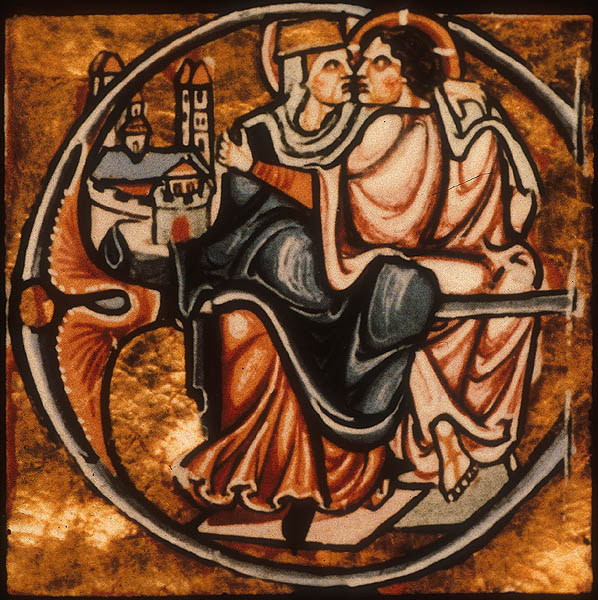 ros is a cunning desperado who defies every moral authority’s attempt to straighten him out. Church-led campaigns to deny legal recognition to same-sex and cohabiting couples only enhance his daring — and expose the hypocrisy of religions that claim to look out for our souls but, when confronted with Love’s innately Pagan spirit, can’t see past our genitals.
ros is a cunning desperado who defies every moral authority’s attempt to straighten him out. Church-led campaigns to deny legal recognition to same-sex and cohabiting couples only enhance his daring — and expose the hypocrisy of religions that claim to look out for our souls but, when confronted with Love’s innately Pagan spirit, can’t see past our genitals.
Whenever a political measure to extend or deny civil rights and benefits to “nontraditional” relationships gains public attention — such as last May’s ballot measure in my state, North Carolina, that imposed the one-man-one-woman definition of marriage on our Constitution — fundamentalists move in and loudly monopolize all religious discussion of relationships. Their “family values” arguments always come down to “original sin” — the doctrine, dating back to the writing of Genesis, that flesh is inherently wicked, and making love for any reason other than making babies is wrong. Hence popes proclaim homosexuality to be an “intrinsic moral evil” (Pope John Paul II in 1986), and preachers condemn cohabiting outside the purifying “sacrament” of matrimony as “living in sin”.
After two decades of co-leading a highly public Witch coven in Asheville, in one of the most religiously conservative areas of the country (a stone’s throw from Billy Graham’s headquarters), I’ve become all too familiar with fundamentalists’ judgments of who’s good and who’s evil — and why. Fundamentalism accurately defines itself as scriptural literalism — the insistence that the Bible, Quran, Torah, or whatever text is revered as the One True God’s sole word on a given subject must be interpreted, not as symbol or metaphor, but as objective and inviolate truth. Fundamentalists claim to judge you by the letter of their law, not by its spirit.
But you’ll get nowhere with them by arguing how subjectively and selectively they pick those letters. It’s pointless to counter-quote those sensuous paeans to erotic love in the Psalms, for example. Literalism is just a symptom of fundamentalism’s obsession with the outer forms of things — their appearance, categories, and labels — and with forcing the seemingly confused and conflicting babel of diversity into the seductively simple, static, black-and-white, God-above-vs.-Devil-below, no-weeds-allowed-in-my-perfect-lawn order that people drawn to fundamentalism crave.
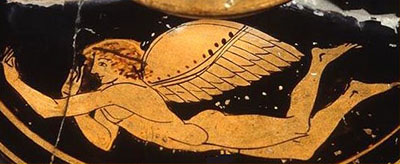
Love’s rebellious disregard for such tidy moral schemes compels religious fundamentalism to reveal the mechanistic mindset that it paradoxically shares with its mortal enemy, scientific materialism. The orthodox religious rationale that love without resulting procreation violates God’s cosmic order is uncannily similar to the Godless genetic reductionism espoused by biologists of the “selfish gene” school of thought who assert that our anguished longings and heartfelt yearnings for one another are nothing but our genes machinating via hormones and pheromones to perpetuate themselves.
So in the end, Extreme Religion and Extreme Science — two ideological poles of modern civilization that are supposed to be diametrically opposed, whose advocates continually battle over fetal souls vs. embryonic stem cells, creationism vs. evolution, divine design vs. random chance — seem agreed on one thing: the dismissal of love. If all that torrid full-moon-serenade, caution-to-the-winds, stuff-of-poetry-and-drama romance doesn’t result in offspring, it’s either spiritually sinful or biologically frivolous. Get back to your cubicles, you lovebirds, and spend your lunch breaks reading your Bible or A Brief History of Time.
Thank Aphrodite, I and my fellow Wiccan priest/ess (and longtime cohabiting partner) are Pagans. She and I, along with the enormous diversity of folks we serve as clergy, can draw from a far older, much deeper and more inclusive well of wisdom about love and relationships than one can find in either of these upstart modern sects.
One of my favorite go-to sages is Plato, the pre-Christian “father of philosophy”, and in particular his teacher, Socrates, whose profoundly Pagan awareness of the unity of reason and mystery radiates from Plato’s writings. Like nearly all practitioners of the world’s countless forms of indigenous spirituality that we nowadays class together as Paganism, Socrates was a polytheist who believed that the divine reflects itself through not just one, but many gods and goddesses; and an animist who recognized that nature is not inert matter, but imbued with soul. His wisdom, however, is not issued as authoritarian judgment: Unlike the lists of commandments laid down like the proclamations of a monarch in monotheistic scriptures such as the Bible and Quran, Plato’s dialogues weave themselves democratically around not only Socrates’s perpetually dissenting questions, but also the diversely opinionated give-and-take of many other individual voices.
The “Symposium”, one of Plato’s most famous works, confronts the controversies of love. Is it merely lust for an attractive body, as materialists then and now maintain? Is it about singular commitment to a soulmate — like the intimate camaraderie between Achilles and his fellow warrior Patroclus? Is homosexuality in fact a nobler form of love than heterosexuality, for the very reason that it does not result in physical progeny? Is love a god, is it madness, or is it both? All these theories are debated freely around the Symposium’s banquet table.
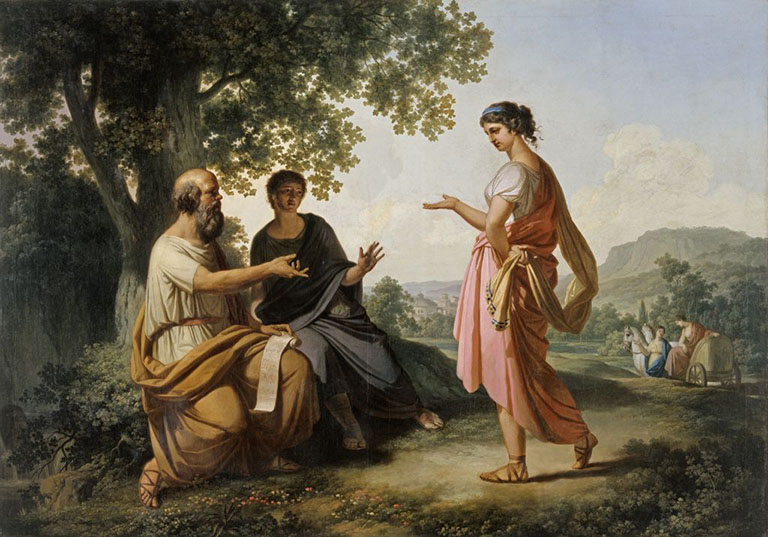
But Socrates gives the game-changing answer to all questions about the nature of love when he recounts a youthful discourse with his first instructor in the ways of love: Diotima of Mantinea, a prophetess — or as we’d now call her, a witch — whom he also credits with teaching him the questioning technique that we now call the “Socratic method”. (Whether she schooled him as well in more intimate techniques goes discreetly unmentioned.)
Love, the witch taught the philosopher, is not a god or goddess, but a spirit who communicates between ourselves and the gods. He is demanding yet crafty, the son of Need and Resource, a determined seeker who gives up everything and stops at nothing in his quest for beauty. Diotima explained that although courtship between man and woman that leads to children and family is admirable, it’s just one of Love’s noble pursuits. Another is procreation of things of the spirit, such as art or law — creating, through the inspiration of one’s relationship with a friend or lover, “something lovelier and less mortal than human seed”.
A would-be initiate into Love’s true mysteries will begin by falling in love with the beauty of one individual body, then with every lovely body — but will not remain content with mere physical lust. He or she becomes smitten with the beauties of the soul, even when it inhabits an unlovely body; then with the interrelated beauties the lover contemplates in laws, institutions, arts and sciences — in every kind of knowledge; and ultimately with the timeless, universal, divine beauty in which all lovely things partake.
In other words, love is the lens through which the beauty of life reveals itself. It’s not a being or thing that exists apart, aloof unto itself like a god who bestows favor from a distant heaven: It exists as relationship, like a spirit that flies between realms. This lens can be clear or cloudy, your relationship healthy or unhealthy to the degree that it connects you with or distracts you from the inner beauty of your beloved — but it’s this intangible essence that matters, not the corporeal form on which your love is focused.

Straight, gay, bisexual, polyamorous … researching cancer, collecting stamps, smoking pot — Pagans don’t categorize whoever or whatever you love by its outer labels and appearances as inherently good or evil. We don’t scour the Almighty’s book of taboos to see if the prophets have banned it along with mixing linen and wool or eating beasts without cloven hooves. In contrast to fundamentalist monotheism, Pagan polytheism encourages pluralism: Accepting and learning to worship multiple gods and goddesses, rather than just one, trains us to seek the inner common threads that run through the world’s outer babel of names, symbols, rituals, cultures, languages, etc. — in short, to judge books by their contents, not their covers.
This doesn’t mean that anything goes as long as it gets you off. For example, things got pretty tricky for the Greeks when they started debating man/boy liaisons. At the time, the upper classes considered it socially acceptable for a wealthy older man to court a handsome young boy as a lover. (If today’s disgraced priests and coaches had been employed in ancient Athens, they would probably still be collecting their drachmas and cornering their adolescent charges in the communal baths.) But the discussions in Plato’s dialogues reveal how controversial the practice really was, especially among parents, because it typically led to sexual and emotional abuse of a trusting child. From various angles Socrates presses his aristocratic listeners to direct their quest for beauty to a boy’s mind and soul rather than his body — to practice what we now call “platonic” love.
As Diotima and Socrates pointed out, it’s not about whom or what you love, but how. Love turns ugly and meaningless when a lover exploits the object of love for selfish ends. Harm none, and treat others as you would be treated — as ends in themselves, not means to your own — is a Pagan ethic of compassion that can’t be commanded, but comes naturally when you begin to care more about people’s hearts than their breast sizes. It’s the same advice lovelorn singles receive: If you want him/her to return your messages, you must value them as a person, listen to them, ask them about their day, and mean it.
In contrast with materialists and monotheists, this wise ethic of Love also informs Pagans’ animistic relations with Nature. If carpentry is our passion, we don’t treat a tree as mere board-feet of lumber to be milled in whatever way the almighty market dictates to maximize profit. Nor do we look down on it as a baser creature than ourselves, to be chainsawed without a qualm because “the Lord” granted Man dominion over all creation.

Instead, woodworkers whose values are Pagan strive to honor the life and soul of the tree. Before chopping down its body, they follow the widespread ancient tradition of making a prayer or offering to its indwelling spirit. When cutting or carving it, they respect its unique qualities of color, grain, strength, etc., courting and coaxing the wood to reveal its inner beauty. When its designated use is done, they strive to recycle it for new uses rather than callously discarding it in a dump. From the beginning to the end of his or her relationship with the tree, a pious Pagan treats it with love.
Still, Eros is a restless rogue. If untempered by conscience or compassion, he can trample family, friends, and colleagues like a rampaging bull to reach the latest object of his obsession. Marriage is not just a personal ceremony of commitment — it’s also society’s effort to protect itself from desire run amok, constraining it by the timeless magic of oaths, talismans, and spells. Brides and grooms swear a vow of commitment before a representative of universal law and justice — whether a religious priest or priestess, or a secular judge, ship’s captain, etc. The oath is sealed with a symbol of binding — whether a gold ring, a knotted ribbon, etc. And they participate in ritual acts to bless their crossing of this new threshold in life — whether jumping a broom to grant them partnership, cutting a cake to forfend hunger, smashing a glass to remove hardship, etc.
The central purpose of all this matrimonial magic is to secure the heart-to-heart vow that is still sometimes referred to as a “pledge of troth” — a promise of mutual trust. Such compacts are, after all, the invisible ligaments that bind society together like the gravitational forces that bind the planets to their orbits — from the “full faith and credit” that backs a federally secured mortgage, to the “oath of office” administered to those we entrust with making and enforcing laws, to the “truth, the whole truth, and nothing but the truth” we vow to testify to in a court of law.

The way Pagans see it, as long as pledges made are honorably upheld, society’s need for stability is fulfilled. It doesn’t matter what genders the wedded troth-keepers are, nor whether they are a couple or a triple or a harem: What counts is their fidelity to one another, and their refusal of temptation to break the bond by lying to or cheating on one another. By contrast, it generates social chaos and instability when fundamentalist-influenced voters and lawmakers impose needless stress on a relationship by denying the partners in a mutually committed gay, common-law, or polyamorous marriage the right to participate in civil benefits granted to other couples solely by virtue of their being one man and one woman, granted one seal of approval.
It also frays the social fabric to insist on tying the bond so tight that it threatens to suffocate the participants. Vowing to unite “till death do us part” is a remnant of days now distant for all but the wealthiest among us, when a formal marriage cemented political and economic alliances between two families, clans, or kingdoms — when wars and fortunes might ride on the question of which bride had the most to offer, which child of the union was the “legitimate” heir to the bloodline.
Put bluntly, these days it’s spiritually unconscionable to insist, as I’ve seen religious conservatives do, that divorcing in order to leave an abusive, irreparably troth-broken marriage is more immoral than preserving matrimonial bonds — to elevate, once again, the outer form of the relationship beyond its inner purpose. And in today’s atomized “hookup” culture, it’s irresponsible for clergy to categorically condemn all sexual exploration unless it leads to lifelong commitment and childbearing.
As Wiccans, Lady Passion and I are empowered by our religious tradition to bond lovers in an ancient, much more flexible form of trial marriage called “handfasting”. For a year and a day, each vows to “cleave to you and to you only, as long as love be in our hearts”. At the end of this time, they can renew their vows, make them permanent, or sever the relationship and formally “handpart” as friends. (My partner and I have been renewing our vows for nearly 20 years and 20 days so far.)
As clergy, we are also empowered by our state’s law to sign and seal the document that makes a marriage official — but only for one man and one woman, for life. That restriction is, in our view, an outdated and unconstitutional imposition by the government of fundamentalist Christianity’s misconception of what constitutes love and marriage.
That’s why, this Halloween [2012], Coven Oldenwilde will be devoting Asheville’s 18th Annual Public Samhain Witch Ritual to protesting this law — and casting a spell designed to change it — by conducting a mass wedding, handfasting, and vow renewal for lovers of any gender or number in front of our county courthouse (where our county commissioners recently refused to extend anti-bias protections to homosexual county employees).
The rite’s theme, “Love is the Law,” alludes to the magician Aleister Crowley’s famous seven-word declaration, which captures Pagans’ inclusive yet intimate understanding of that spirit child of Need and Resource who cannot be tamed, yet flourishes when channeled:
“Love is the law, love under will.”
Steve Rasmussen (*Diuvei) is the High Priest of Coven Oldenwilde in Asheville, NC, and co-author of “The Goodly Spellbook: Olde Spells for Modern Problems” with his partner and High Priestess, Dixie Deerman (Lady Passion). To contact him or learn more about Wicca and the Samhain Public Witch Ritual, visit: www.oldenwilde.org.
Review:






